SAMPLING OF CONTRIBUTORS
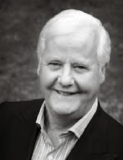
Os Guinness
Political analyst and social critic Os Guinness provides both historical and current evidence that suggests America is perilously close to reaching this point today.

Richard Dawkins
Clinton Richard Dawkins is an English evolutionary biologist and author. His NY Times best-selling books include “The Selfish Gene,” popularizing the gene-centered view of evolution.

C.S.Lewis
Clive Staples Lewis was a novelist, poet, academic medievalist, literary critic, essayist, lay theologian, and Christian apologist. He is best known for his fictional work, especially “The Chronicles of Narnia” and “The Screwtape Letters,” which have made him one of the world’s most popular modern writers.

Martin Luther King, Jr.
Martin Luther King, Jr. was an American clergyman, activist, and leader in the African-American Civil Rights Movement. He is best known for his role in the advancement of civil rights using non-violent civil disobedience.

Clara Barton
Clarissa Barton was an American teacher, patent clerk, nurse and humanitarian. She was the founder of the American Red Cross and built a “career” helping others at a time when relatively few women worked outside of the home.

Timothy Keller
Timothy Keller is an American Christian theologian and philosopher who is a NY Times best-selling author, speaker and the founding pastor of Redeemer Presbyterian Church in New York City, New York.

Thomas Edison
Thomas Edison was an American inventor and businessman. He developed countless devices that made a an impact on life worldwide – including the phonograph, the motion picture camera and the light bulb. He is one of the most prolific inventors in history.

Albert Einstein
Albert Einstein, widely regarding as one of the most influential of all modern scientists, was a German-born theoretical physicist who developed the general theory of relativity, one of the two pillars of modern physics. He received the 1921 Nobel Prize in Physics.

Ben Carson
Benjamin Carson, Sr. is one of the most prominent neurosurgeons of the last century, and was awarded the Presidential Medal of Freedom in 2008 for his work in advancing scientific and civic dialogue.
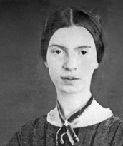
Emily Dickinson
Emily Dickinson is considered to be one of the most important American poets, writing during the late 1800’s though her fame would not rise until after her death in 1886.

John F. Kennedy
John F. Kennedy (or “JFK”) was the 35th President of the United States. He was a military commander in WWII, the second youngest president, the only non-Protestant President, and the only president to have won the Pulitzer Prize.

Ben Franklin
Benjamin Franklin was one of the Founding Fathers of the United States. He was a leading author, printer, political theorist, politician, postmaster, scientist, musician, inventor, satirist, civic activist, statesman and diplomat – a major figure in the American Enlightenment.
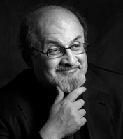
Salman Rushdie
Sir Ahmed Salman Rushdie is a British Indian novelist and essayist who risked his life to publish a NY Times best-selling book entitled Satanic Verses. He since published a book detailing his fight to survive the death threats from Islamic extremists.
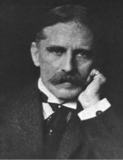
Henry Van Dyke
Henry Jackson van Dyke (November 10, 1852 – April 10, 1933, aged 80) was an American author, educator, and clergyman.
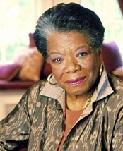
Maya Angelou
Maya Angelou is an American author and poet. She is best known for her series of autobiographies which focus on her childhood and early adult experiences. She was active in the American Civil Rights movement and holds the first Reynolds Professorship of American Studies at Wake Forest University.

Ronald Reagan
Ronal Reagan was the 40th President of the United States. Before that, he was the governor of California and a radio, film and television actor. He is the founder of “Reagonomics,” a supply-side economic program.
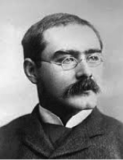
Rudyard Kipling
Joseph Rudyard Kipling was an English short-story writer, poet, and novelist chiefly remembered for his tales and poems of British soldiers in India and his tales for children.
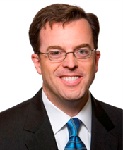
Matthew Spalding
Matthew Spalding is the vice president for American Studies at the Heritage Foundation. He is a constitutional scholar, historian and best-selling author.
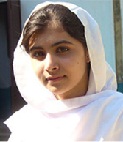
Malala Yousafzai
Malala Yousafzai is a Pakistani school pupil and education activist from the town of Mingora. She is the youngest nominee for the Nobel Peace Prize in history. She is known for her education and women’s rights activism in the Swat Valley, where girls’ education is banned.
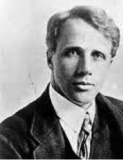
Robert Frost
Robert Lee Frost was an American poet. He is highly regarded for his realistic depictions of rural life and his command of American colloquial speech.
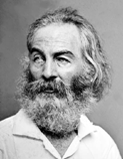
Walt Whitman
Walter “Walt” Whitman was an American poet, essayist and journalist. A humanist, he was a part of the transition between transcendentalism and realism, incorporating both views in his works.
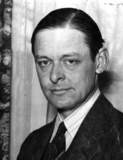
T.S. Eliot
Thomas Stearns Eliot OM was a publisher, playwright, literary and social critic and “one of the twentieth century’s major poets.”
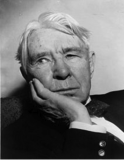
Carl Sandburg
Carl Sandburg was an American writer and editor, best known for his poetry. He was the recipient of three Pulitzer Prizes: two for his poetry and another for his biography of Abraham Lincoln.
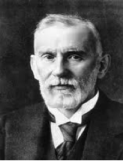
Paul Ehrlich
Paul Ehrlich was a German physician and scientist who worked in the fields of hematology, immunology, and chemotherapy.

Leonard Read
Leonard Edward Read was an American economist and the founder of the Foundation for Economic Education, which was the first modern free market think tank in the United States.
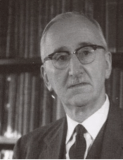
F.A. Hayek
Friedrich August Hayek CH, born in Austria-Hungary as Friedrich August von Hayek and frequently known as F. A. Hayek, was an Austrian, later British, economist and philosopher best known for his defense of classical liberalism.
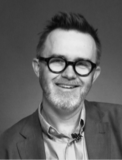
Rod Dreher
Rod Dreher is an American writer and editor. He was a conservative editorial writer and a columnist for The Dallas Morning News, but departed that newspaper in late 2009 to affiliate with the John Templeton Foundation.
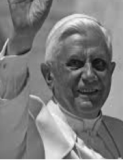
Pope Benedict
Supreme Pontiff emeritus of the Catholic Church. He was Pope from 2005 to 2013. In that position, he was both the leader of the Catholic Church and Sovereign of the Vatican City State. Benedict was elected Pope on 19 April 2005 in a papal conclave and resigned on 28 February 2013.
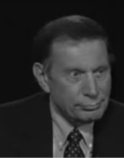
Armand Nicholi
Armand M. Nicholi, M.D., Jr. is a clinical professor of psychiatry at Harvard Medical School and the Massachusetts General Hospital.
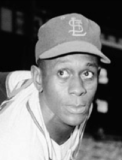
Satchel Paige
Leroy Robert “Satchel” Paige was an American baseball player whose pitching in the Negro leagues and in Major League Baseball made him a legend in his own lifetime.
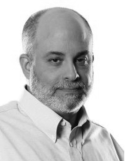
Mark Levin
Mark Reed Levin is an American lawyer, author, conservative commentator, and the host of American syndicated radio show The Mark Levin Show.
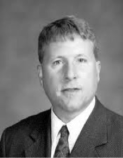
Paul Kengor
Paul Kengor is a professor of political science at Grove City College. He is the executive director of the College’s Center for Vision and Values.
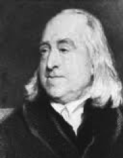
Jeremy Bentham
Jeremy Bentham was a British philosopher, jurist, and social reformer. He is regarded as the founder of modern utilitarianism.
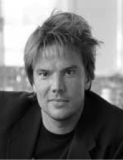
Bjarke Ingels
Bjarke Ingels is a Danish architect. He heads the architectural practice Bjarke Ingels Group which he founded in 2006. In 2009 he co-founded the design consultancy KiBiSi.

Adam Smith
Adam Smith was a Scottish moral philosopher and a pioneer of political economy. One of the key figures of the Scottish Enlightenment, Adam Smith is best known for two classic works: The Theory of Moral Sentiments (1759), and An Inquiry into the Nature and Causes of the Wealth of Nations (1776).
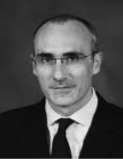
Arthur Brooks
Arthur C. Brooks is an American social scientist and musician. He is the president of the American Enterprise Institute, a nonpartisan think tank. Brooks is best known for his work on the junctions between culture, economics, and politics.

Cornel West
Cornel Ronald West is an American philosopher, academic, activist, author, and prominent member of the Democratic Socialists of America. West is a 1973 graduate of Harvard University and received his PhD at Princeton University.
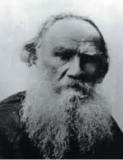
Leo Tolstoy
Count Lev Nikolayevich Tolstoy, also known as Leo Tolstoy, was a Russian writer who primarily wrote novels and short stories. Later in life, he also wrote plays and essays.
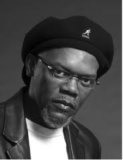
Samuel Jackson
Samuel Leroy Jackson is an American film and television actor and film producer. After becoming involved with the Civil Rights Movement, he moved on to acting in theater at Morehouse College, and then films.
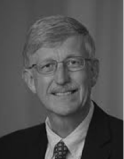
Francis Collins
Francis Sellers Collins is an American physician-geneticist noted for his discoveries of disease genes and his leadership of the Human Genome Project. He currently serves as Director of the National Institutes of Health in Bethesda, Maryland.
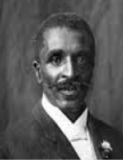
George Washington Carver
George Washington Carver, was an American scientist, botanist, educator, and inventor. The exact day and year of his birth are unknown; he is believed to have been born into slavery in Missouri in January 1864.

Nikola Tesla
Nikola Tesla was a Serbian-American inventor, electrical engineer, mechanical engineer, physicist, and futurist best known for his contributions to the design of the modern alternating current electricity supply system.
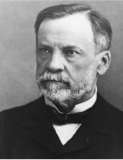
Louis Pasteur
Louis Pasteur was a French chemist and microbiologist who was one of the most important founders of medical microbiology. He is remembered for his remarkable breakthroughs in the causes and preventions of diseases.
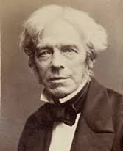
Michael Faraday
Michael Faraday, FRS was an English scientist who contributed to the fields of electromagnetism and electrochemistry. His main discoveries include those of electromagnetic induction, diamagnetism and electrolysis.
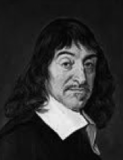
René Descartes
René Descartes was a French philosopher, mathematician, and writer who spent most of his adult life in the Dutch Republic.

“PZ” Myers
Paul Zachary “PZ” Myers is an American scientist and associate professor of biology at the University of Minnesota Morris. He is founder and co-author of the Pharyngula science blog, hosted on both the Science Blogs and Freethought Blogs networks.
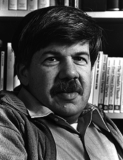
Stephen J. Gould
Stephen Jay Gould was an American paleontologist, evolutionary biologist, and historian of science. He was also one of the most influential and widely read writers of popular science of his generation.
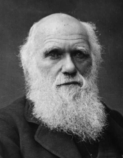
Charles Darwin
Charles Robert Darwin, FRS was an English naturalist. He proposed the scientific theory that the branching pattern of evolution resulted from a process that he called natural selection, in which the struggle for existence has a similar effect to the artificial selection involved in selective breeding
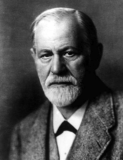
Sigmund Freud
Sigmund Freud was an Austrian neurologist who became known as the founding father of psychoanalysis.
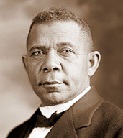
Booker T. Washington
Booker Washington was an African-American educator, author, orator, and adviser to several Presidents of the United States who became well known for his advocacy of moral education.

John Lennox
John Lennox is a British mathematician and philosopher of science who is a Professor of Mathematics at Oxford University, and is known as the last living student who was tutored by C.S. Lewis.
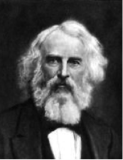
Henry Wadsworth Longfellow
Henry Wadsworth Longfellow (February 27, 1807 – March 24, 1882) was an American poet and educator whose works include “Paul Revere’s Ride”, The Song of Hiawatha, and Evangeline. He was also the first American to translate Dante Alighieri’s The Divine Comedy and was one of the five Fireside Poets.